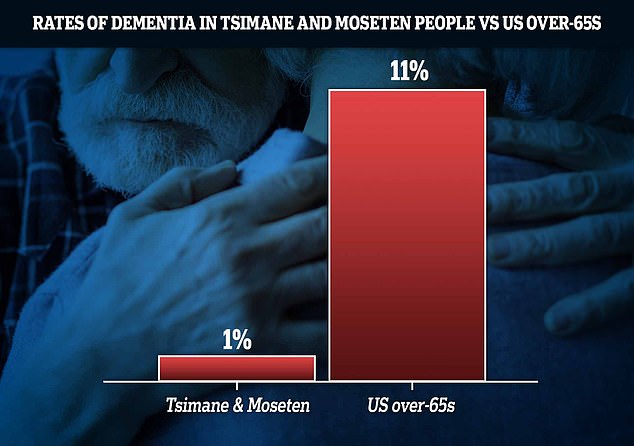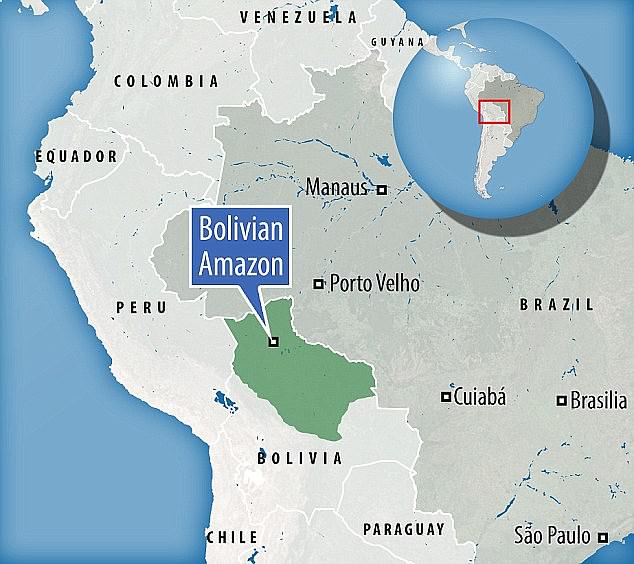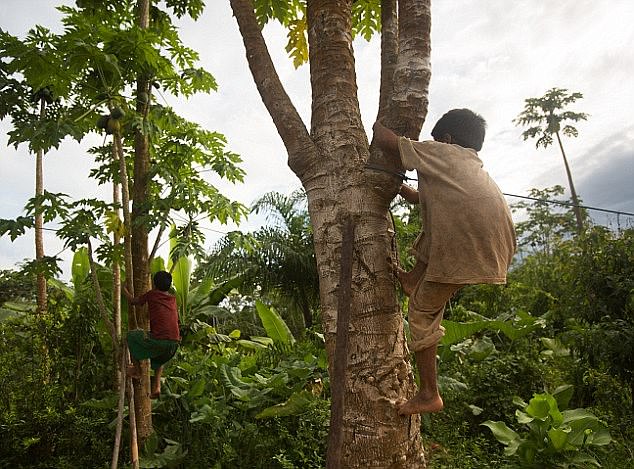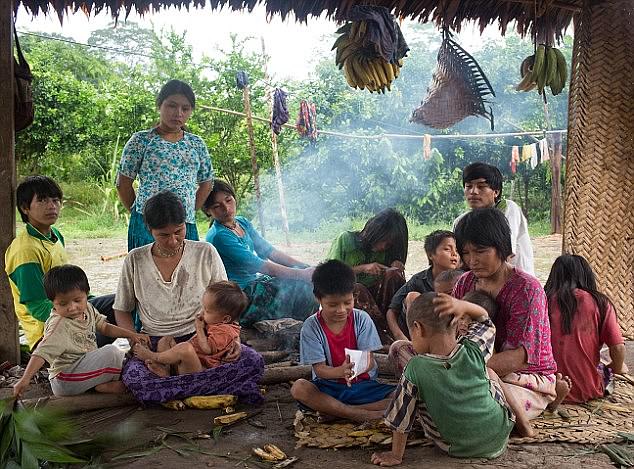An indigenous tribe in the heart of the Bolivian jungle could hold clues to longevity as scientists claim they are the healthiest humans ever studied.
The Tsimane community is one of the last groups of people on the planet living a subsistence lifestyle based on hunting, food gathering and agriculture. They spend less than 10 percent of their daylight hours in sedentary activities, compared to 54 percent of working populations, and have little access to processed foods, alcohol and cigarettes.
For decades, scientists have marveled at the astonishing heart and brain health of the Tsimane tribe, rooted deep in the Amazon rainforest 600 kilometers north of La Paz, Bolivia’s largest city.
No cases of Alzheimer’s have been recorded among the tribe’s 16,000 inhabitants, while studies show that older members of the group have 70 percent less brain atrophy than those of the same age in industrialized countries.
They also showed reduced rates of hypertension, diabetes and heart problems.
The Tsimane farming and harvesting community (pictured) in the Bolivian lowlands were said to have the “healthiest hearts ever studied”.
A team of researchers led by anthropologist Hillard Kaplan of the University of New Mexico has studied the tribe for two decades.
They found that the Tsimanes are constantly active hunting animals, planting food and weaving thatch.
An average hunt for the tribe lasts more than eight hours and covers 11 miles.
Meanwhile, only 14 percent of the calories they consume come from fat, compared with 34 percent in the United States, according to research cited by the BBC.
Their diet is also high in fiber, with 72 percent of their calories coming from carbohydrates, compared with 52 percent in the United States.
What’s more, their protein generally comes from the animals they hunt, such as birds, monkeys and fish, and their cooking style does not include frying.
These lifestyle habits could be the key to longer life in Western societies, the scientists concluded.
Normally, humans accumulate fats, cholesterol and other substances that can cause their arteries to thicken or harden as they age, causing atherosclerosis.

Tsimane and Mosetén hunter-gatherer communities in the Bolivian Amazon have dementia rates 11 times lower than in the United States, a study says

The Tsimane are a tribe of around 16,000 people who live along the banks of the Maniqui River in the Bolivian Amazon.
But a study published by The Lancet in 2017 found that 65 percent of 705 Tsimanes over the age of 40 had coronary artery calcium (CAC), a sign of clogged blood vessels that puts patients at risk of a heart attack.
By comparison, 80 percent of Americans show signs of CAC.
Professor Kaplan concluded: “The arteries of a 75-year-old Tsimane look more like those of a 50-year-old American.”
However, research is limited in part by the fact that the Tsiman do not keep track of their age, as many have difficulty counting.
Scientists often use the ages of their children to calculate records of tribal members.
A 78-year-old Tsimane man named Juan told the BBC‘Now the hardest thing is my body. I don’t walk much anymore… it will be two days at most.’
Despite their remarkable brain and heart health, the Tsimane population has a low life expectancy due to other threats in their environment.
When Professor Kaplan’s study began, life expectancy was just 45 years, but it has since risen to 50.

This tribe of more than 16,000 members is extremely active in its daily life: hunting and fishing, and eating a diet low in fat and sugar. In the picture: a Tsimane child climbs a tree in search of a coconut.
Bolivian doctor Daniel Eid Rodríguez, medical coordinator of the researchers, told the BBC‘These people who reach 80 years of age were those who managed to survive a childhood full of illnesses and infections.’
Members of the tribe were shown to have high levels of pathogens and inflammation, meaning they are constantly fighting infections.
This has led to speculation that this constant exposure to the infection could also improve their long-term health.
However, some aspects of the Tsiman lifestyle are changing. Multiple forest fires in the region in 2023 scorched nearly two million hectares of jungle and forest, causing animals to flee.
This has made hunting in the region difficult. BBC information.
The tribe is also starting to use boats with outboard motors, meaning they are doing less rowing than before, one of the most strenuous activities they were used to.
Tsimane Hilda, who is reported to be 81 years old, told the outlet: “I’m not afraid of dying because they’re going to bury me and I’m going to stay there… very still.”


